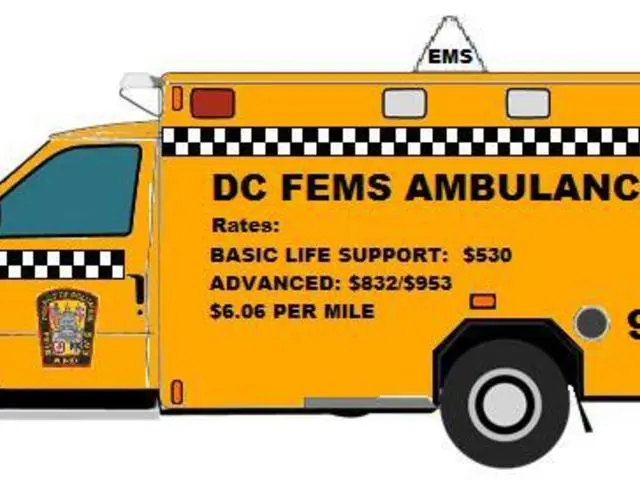Unmissable indications of heart problems that you should take seriously:
Unconventional Symptoms of Heart Attacks: What Cardiologists Want You to Know
While chest pain, sweating, and shortness of breath are generally recognized as symptoms of a heart attack, several less publicized signs can also indicate a serious heart problem. These symptoms may be subtle and vary from person to person, making them easily overlooked. Here are nine uncommon symptoms that cardiologists recommend paying attention to:
- Discomfort in the Chest: A sensation described as a goldfish flipping around in the chest or a sinking feeling, similar to an elevator descending rapidly, can be an indication of a heart rhythm disorder like atrial fibrillation.
- Whooshing in the Ear: A pulsating sound in the ear that seems to align with the heartbeat could signal a narrowing of blood vessels or arterial blockages, tears, or aneurysms.
- Leg Pain during Walking: This could be a sign of peripheral artery disease (PAD), where the arteries carrying blood to the legs get clogged. If the discomfort persists for an extended period, consult a doctor.
- Changes in the Feet or Legs: Swelling in both feet or abrupt color changes can indicate congestive heart failure or blood clots, a medical emergency.
- Jaw or Neck Pain with Exertion: If the pain is triggered by physical exertion and relieved by rest, it's advisable to get it checked out as it may signal an increased risk of a heart attack or stroke.
- Indigestion and Nausea: Chest discomfort and belching might not necessarily be related to your dinner. They could signify ischemic heart disease, especially if they don't go away or are accompanied by other symptoms like lightheadedness or unusual fatigue.
- Carpal Tunnel Discomfort and Shortness of Breath: This combination of symptoms could indicate cardiac amyloidosis, where proteins deposit in the heart and disrupt its functioning.
- Sudden Stabbing Chest Pain: This could be a sign of aortic dissection, a tear in one of the body's major arteries, which can be deadly if left untreated.
- Difficulty with Daily Activities: Valvular disease, where the heart's valves aren't functioning correctly, can cause fatigue and make it hard to perform regular activities. Alert your doctor if you notice this.
It's essential to take these symptoms seriously and seek medical attention when necessary. Further research suggests that exhaustion, sleep disturbances, shortness of breath, nausea or vomiting, stomach pain or heartburn, dizziness, and discomfort in various body parts, along with sweating and palpitations, can also be signs of heart trouble, particularly in women. Prompt medical attention is crucial if any of these symptoms occur suddenly or are severe.
- In addition to conventional heart attack symptoms, indigestion and nausea can indicate ischemic heart disease, a serious cardiovascular condition.
- Mental health also plays a significant role in overall health and wellness, and stress, anxiety, and depression can exacerbate chronic diseases and affect cardiovascular health.
- Fitness and exercise are essential for maintaining a healthy heart, but the consumption of CBD, a cannabis compound, may help alleviate discomfort in people diagnosed with peripheral artery disease.
- Proper nutrition is key in managing chronic diseases and maintaining cardiovascular health, as a balanced diet rich in fruits, vegetables, lean proteins, and whole grains can help lower the risk of developing heart conditions.






